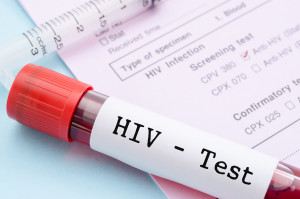The Number One Reason Women Don’t Get HIV Tested is Fear
 The terms HIV and AIDS are powerful. They can instill fear, conjuring images of a terminal disease that causes years of painful suffering, isolation, social stigmas, and the risk of infecting those you love. HIV and AIDS are serious diseases with deadly consequences, but when fear of a diagnosis leads to an avoidance of testing, you only put yourself, and your loved ones, at a greater risk. According to a recent survey published in AIDS and Behavior, the majority of people who do not seek out testing for HIV and AIDS are either afraid of the test or afraid of getting a positive diagnosis. If you are one of the millions of Americans avoiding the HIV test, put your fears aside and consider the dangers you put yourself in by living in denial.
The terms HIV and AIDS are powerful. They can instill fear, conjuring images of a terminal disease that causes years of painful suffering, isolation, social stigmas, and the risk of infecting those you love. HIV and AIDS are serious diseases with deadly consequences, but when fear of a diagnosis leads to an avoidance of testing, you only put yourself, and your loved ones, at a greater risk. According to a recent survey published in AIDS and Behavior, the majority of people who do not seek out testing for HIV and AIDS are either afraid of the test or afraid of getting a positive diagnosis. If you are one of the millions of Americans avoiding the HIV test, put your fears aside and consider the dangers you put yourself in by living in denial.
According to the U.S. Centers for Disease Control (CDC) approximately 13 percent of the more than 1.2 million Americans with HIV are unaware that they have the virus, which means they could be spreading it further without knowing they are putting others at risk. Noticing any unusual signs or symptoms that could be indicative of a sexual transmitted disease (STD) is scary, but just hoping that the symptoms will go away on their own will only leave you in greater danger. Diagnosing HIV early is crucial both to an effective treatment plan, and to stop its spread. Early detection also reduces rates of mortality and morbidity.
Know Your HIV Status
All women should know their HIV status for these four reasons:
- Many new HIV infections are caused by people unaware that they are infected.
- HIV medicines are more effective when treatment begins early.
- Starting treatment early can mean the best health for you, and for a longer time, before you develop AIDS or other infections. When HIV is not identified until it has progressed to advanced stages, treatment options are limited.
- If you are pregnant, there are precautions you can take to avoid passing HIV to your baby.
It can take between two weeks and three months after infection for HIV antibodies to be found in your blood. It may take up to three months for an HIV test to be positive if you have reason to believe that you may have recently been infected. Talk to your doctor about how frequently you should be tested, given your lifestyle and risk factors.
Get Tested
To help save your own life, and the lives of your loved ones, set your fears aside and get tested:
- At least once after becoming sexually active.
- If you are pregnant.
- If you are having unprotected sex with more than one partner.
- If you are, or have, injected drugs.
- If you are having sex with someone to get money or drugs in return, or have had sex with someone who has traded sex for money or drugs.
- If you have another sexually transmitted infection (STI).
- If you had a blood transfusion between 1978 and 1985.
AIDS and HIV are serious diseases, and being afraid of contraction is understandable, but living in denial that you could be carrying a serious illness won’t keep you or your loved ones safe. Early detection provides the only hope for effective treatment and longevity. Living a lifestyle that mitigates risk factors will help keep you safe. Even if you believe you are not at risk, getting tested will only reaffirm your peace of mind and help diminish the fear and stigma that surrounds testing.
And if you have any questions or fears, discuss them with your doctor. These discussions are 100% confidential.
More
